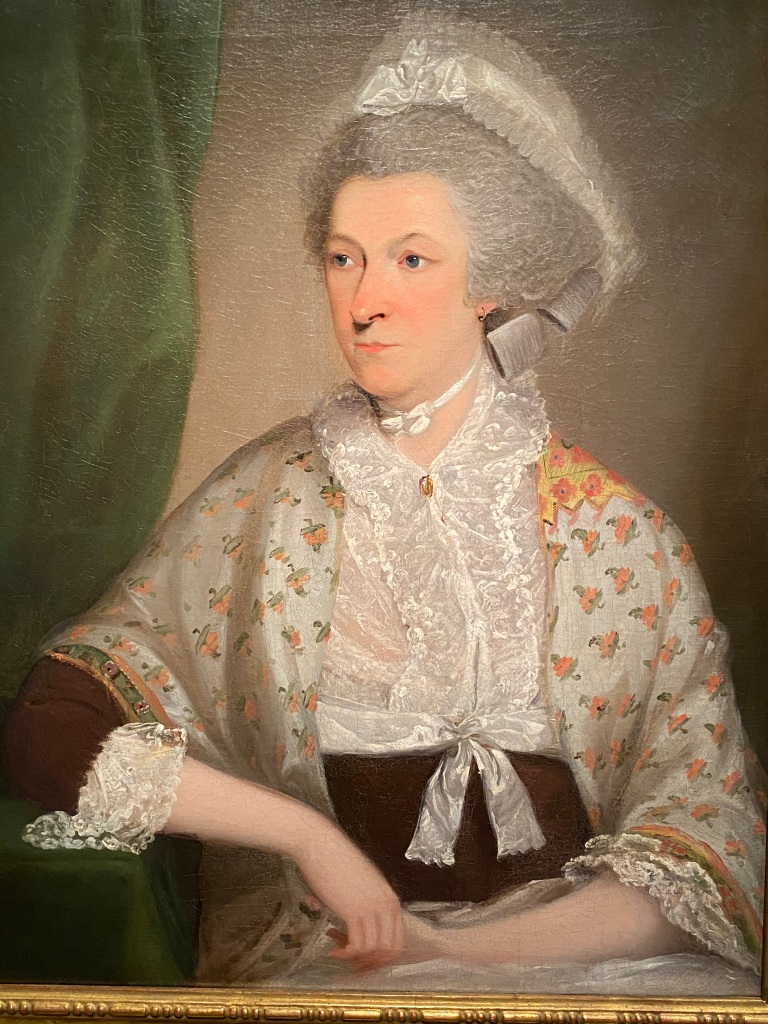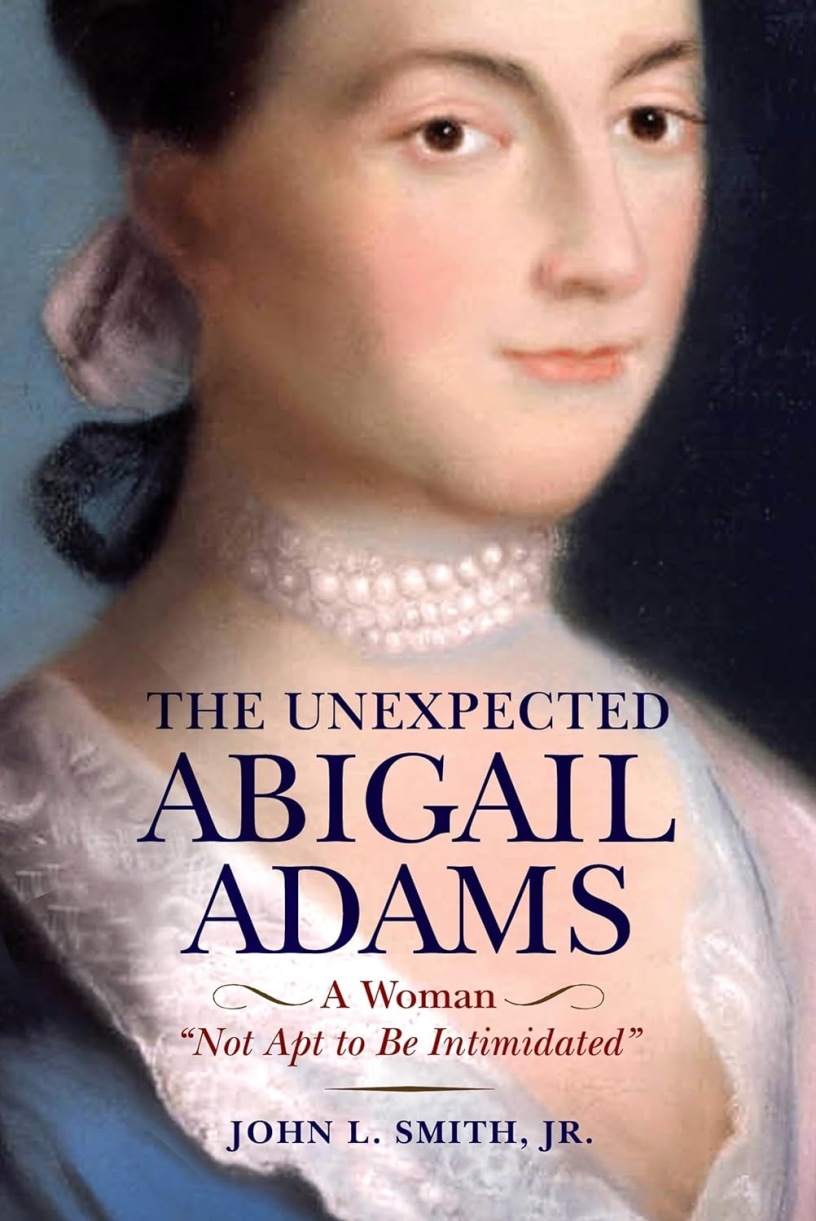Book Review
Smith, John L. Unexpected Abigail Adams: A Woman Not Apt to Be Intimidated. Yardley, PA: Westholme Publishing, 2024.
Readers who only regard Abigail Adams as the precocious wife of John Adams will be in for a surprise. Her contributions to Revolutionary America were considerable and often on par with those of her husband. In the first new biography of Abigail Adams in fifteen years, historian John L. Smith takes a fresh approach, delving deep into the archives to tell Abigail’s story from her perspective. He meticulously studied over 2300 letters written by Abigail, each a fascinating piece of the puzzle spanning the seventy-three years of her life.

Portrait Gallery, Washington, DC
The eighteenth-century couple were strong-willed, perceptive, and highly intelligent founders. In an era before chiefs of staff and political counselors, Abigail served as both, with John Adams not making significant policy or personnel decisions without consulting Abigail. Abigail’s role was not just substantial but pivotal and notable in her own right as the duo interacted with and influenced the most prominent people of their period, including kings, queens, politicians, admirals, and generals. Therefore, attributing John’s successes and failures solely to him omits vital elements to communicate America’s founding story properly.
“Remember the ladies…” is perhaps Abigail’s most famous expression. Some people today believe that Abigail articulated “proto-feminist” sentiments in a letter to John while the Continental Congress debated the Declaration of Independence. Smith, however, sets the record straight. He reveals that Abigail was not advocating for women’s rights in the modern sense but sought relief from the draconian coverture laws. These Revolutionary Era laws prohibited women from owning, inheriting, or transacting in land or any financial assets. All financial affairs were exclusively the husband’s entitlements. Throughout her life, Abigail chaffed at these restrictions, wishing women the same economic rights as men.
However, despite the coverture laws, Abigail expertly managed the family’s financial affairs, especially during the many years that John attended the Continental Congress or European diplomatic missions. She evaded the coverture laws by executing transactions in the name of male relatives and, in the case of her will, sheer audacity. Twenty-first-century eyes might look askance at some of Abigail’s methods, such as shrewdly running a wartime import business, speculating in Vermont lands, and trading in government securities. She engaged in these ethically murky activities to overcome John’s lack of earning power while away on the nation’s business. She generated commercial profits sufficient to fund the family’s expenses and provide “pensions” to various needy relatives and acquaintances despite legal prohibitions against women engaging in financial transactions.
Lastly, Abigail faced issues that are familiar to many women today. She had to fend off unwanted advances from a more powerful male acquaintance leveraging his position. The harassment lasted several years, generating unneeded angst during a dangerous political and military period. Despite all the issues, Abigail deftly managed the situation to her benefit, not always an available outcome.
Having described Abigail’s political instincts, financial acumen, and interpersonal dexterity, rest assured, this review is not a spoiler, leaving readers to discover many other intriguing events in Abigail’s remarkable life. I highly recommend The Unexpected Abigail Adams, as after reading, you will walk away with a new view of America’s first power couple.
We are determined to foment a rebellion, and will not hold ourselves bound by any laws in which we have no voice, or representation.
Abigail Adams

This is a really good review Gene!. I am ordering the book now! Thanks for sharing. Kate
>
LikeLike
Thank you, Kate. You will enjoy reading!
LikeLike
Abaga
LikeLike